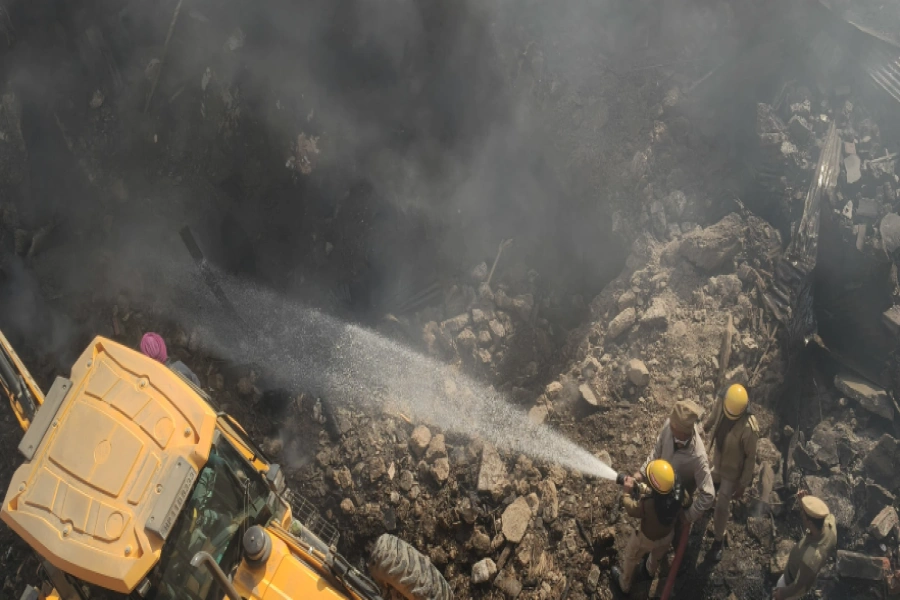The fruits and vegetables we purchase from our local markets and consume as unavoidable constituents of our everyday diet are actually feeding on us. What we are getting in return for a hard-hitting struggle to cope with the ever-escalating prices of staple food items is food that could actually be killing us. The seemingly perfect and alluring vegetables and fruits we see in the market owe their leafy, ripe and plump appearance to hazardous pesticides and chemicals that unnaturally expedite their growth, if not ripen them overnight. Adding to the damage done by hazardous chemicals used while the fruits and vegetables are growing, coloring agents and artificial sweeteners are then put to use.
What is more, fruits like apples and pears are further glazed, with substances that have calamitous health consequences, in order to enhance appearance and lengthen preservation time. As we purchase and consume such low quality food, not only are we being blatantly stripped of our rights as consumers, but also having our health and lives seriously threatened.

4.BP.BLOGSPOT.COM
It is what we eat that affects our heath the most. In the case of fruits and vegetables that sell in our markets, negatively so. What we take to be nutritional power houses that gratify our taste buds and fulfill our nutritional requirements are in fact deceitful. Along with causing short term effects like skin irritation and vomiting, consumption of food grown with pesticides and chemicals can have severe long term effects like immune suppression, hormone disruption and reproductive abnormalities. The carcinogenic effects of the consumption of such low-quality food can lead to stomach and liver diseases as well as various cancers.
A long term exposure to such foods, even in low doses, can also have teratogenic effects that lead to physical deformities and mutagenic effects that affect genetic makeup in the long term. The many instances we have heard of farmers facing harsh health hazards caused by long term exposure to the harmful pesticides and chemicals they use in their produce further illustrates the severity of the issue.
With agriculture being the only income generating source for over 60 percent of the population (Ministry of Agriculture, GON), the implied competitiveness has resulted in dire consequences. Whether it be because of lack of knowledge and awareness, or sheer heedlessness, the abuse of pesticides and growth expediting chemicals like Oxytocin by farmers is rampant. Rarely, if ever, do they read the labels on pesticide containers to check for expiry dates, usage directions and dosage limits and warnings. Most cannot distinguish between fungicides, herbicides, pesticides and rodenticides, and use them at random. During monsoons, when plant infestation is at its peak, such pesticides and growth expediting chemicals are used even more. Not only are some of these chemicals used by farmers extremely hazardous, but also globally banned.
With the rapid increase in availability and transaction of pesticides, there is little hope that the scenario will get better. Pesticide revenue in Nepal in the previous year amounted to a staggering 490 million; more than twice the figure four years ago. The open border we share with India has also heightened the import of pesticides and hazardous chemicals to a great degree.
Like with every other issue, feeble implementation has rendered futile the laws enacted to regulate the use of hazardous pesticides and chemicals and ensure food safety. The Pesticide Act (2048) and the Pesticide Rules (2050), include provisions that necessitate the registration of pesticides before their import, export, production, purchase, sale and use, as well as the obtaining of ‘pesticide retailer’ licenses, ‘pesticide spray entrepreneur’ licenses, and ‘pesticide synthesizer licenses’. As per the Act, people carrying out transactions of pesticides without appropriate licenses and those that deal with illegal, substandard and date-expired pesticides are subject to a fine of five thousand rupees at most. The Act also allows for ‘pesticide inspectors’ to monitor the use of pesticides and seize them as and when required.
The ultimate investigating and decision making authority in cases brought up by the ‘pesticide inspector’, however, rests with the CDO who is least likely to prioritize the issue given his schedule and workload. Rarely, if ever, have offenders been penalized on the grounds of the Act. Furthermore, neither the Food Act (2052) nor the Consumer Protection Act (2054) extends to the ambit of artificially grown produce like fruits and vegetables. As for growth expediting chemicals like Oxytocin, no laws prohibit their use exclusively. The lack of exclusive laboratory facilities for testing food quality has also aided to the fostering of low quality fruits and vegetables in the market.
It goes without saying that the need for proper training and awareness programs on the usage of pesticides and other chemicals is pressing. We need laws that not only limit the sale but also the purchase of such substances by farmers, and specify the maximum usage limits of pesticides for produce according to the time they take to mature. Also, an increment in the fine limit is necessary to control the soaring ‘business’ of illegal chemicals and pesticides. The need for routine monitoring and checks, both at vegetable and fruit markets for substandard products, as well as at Indo-Nepal borders for illegal trade of hazardous pesticides and chemicals, is also crucial.
The author is a law student
thapa.sudeshna@gmail.com
Low female birth rate poses gender imbalance challenges in Nepa...




































